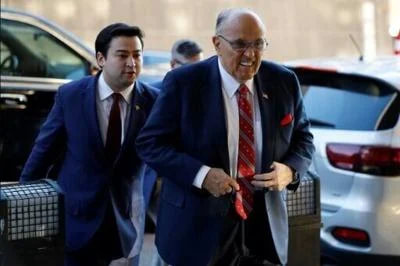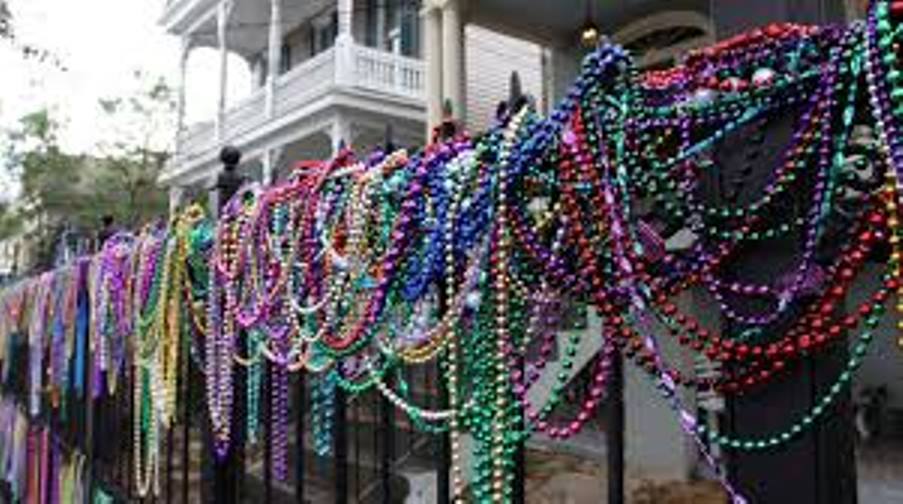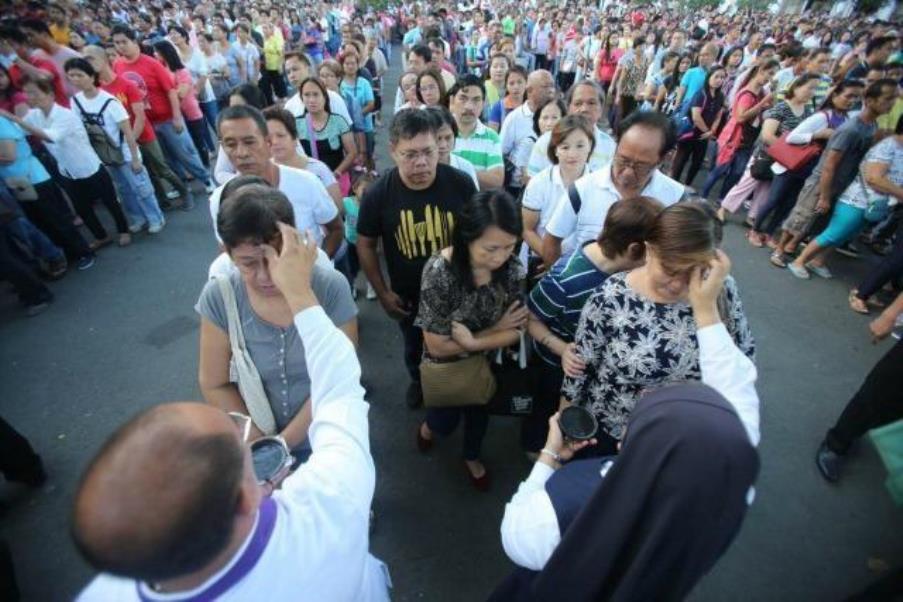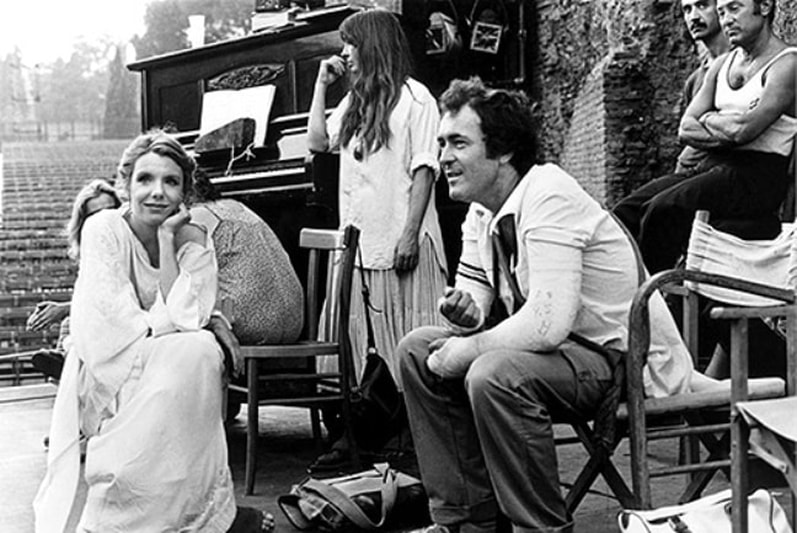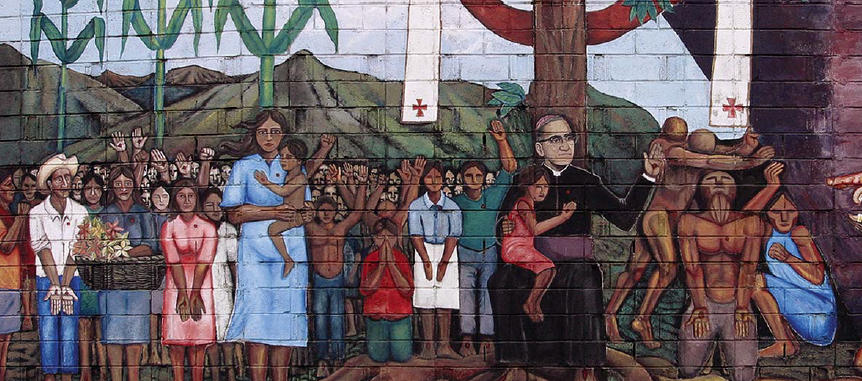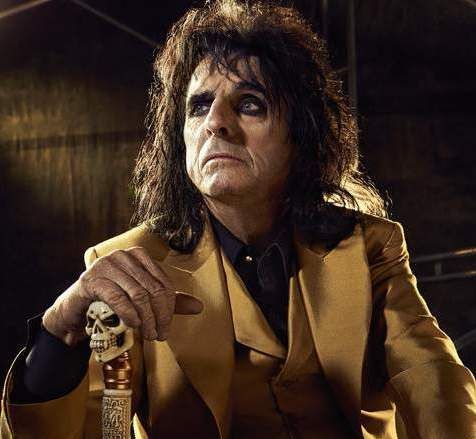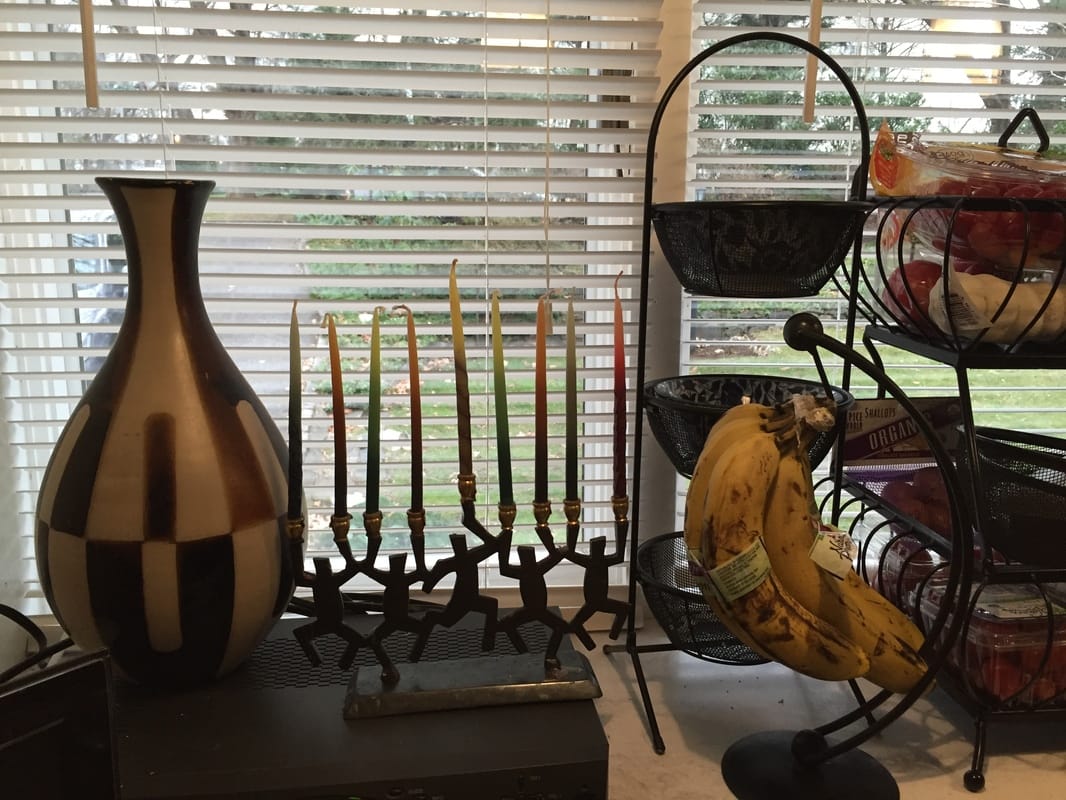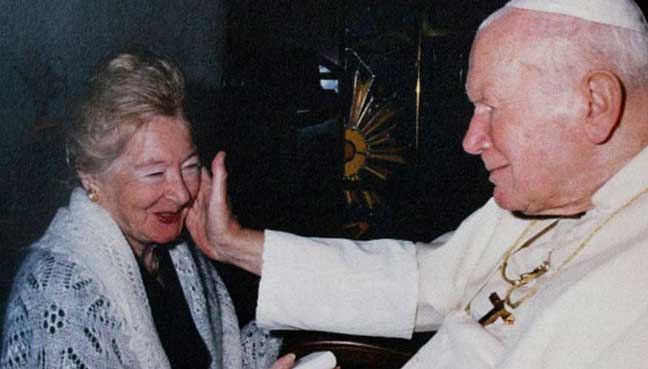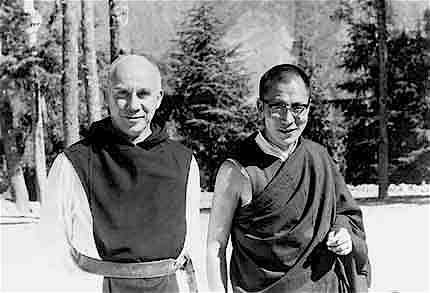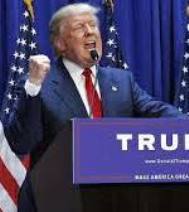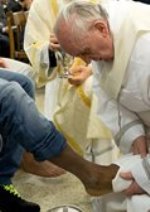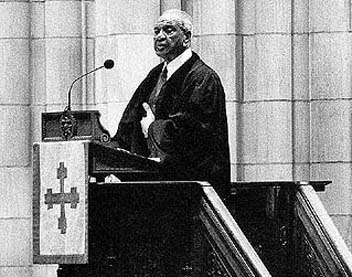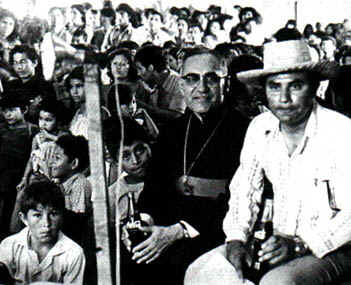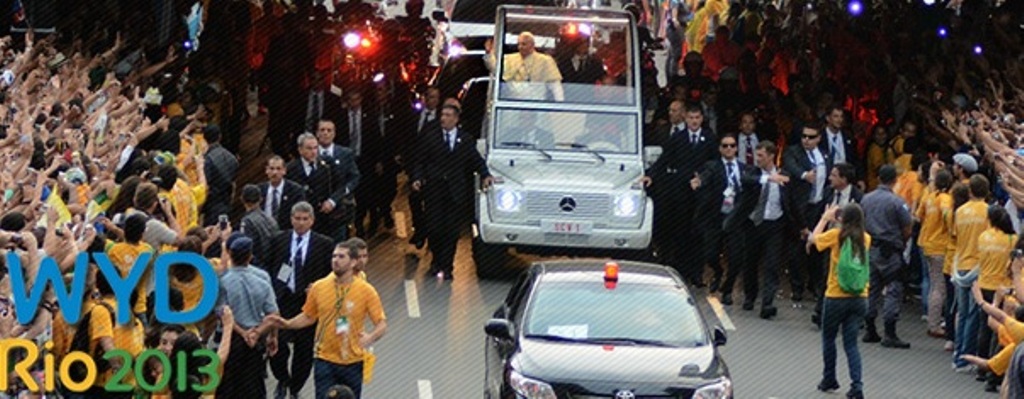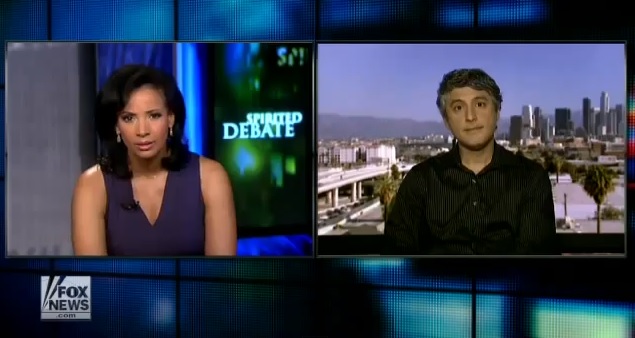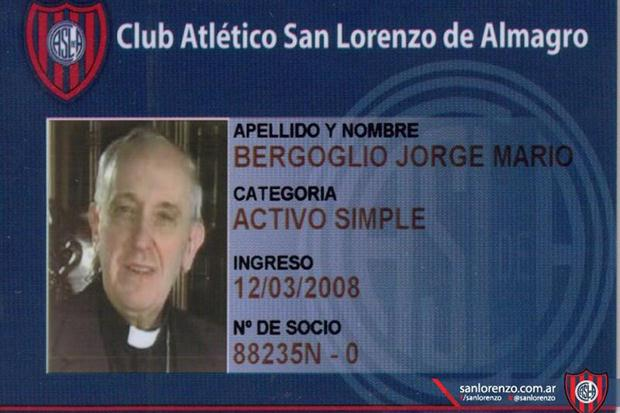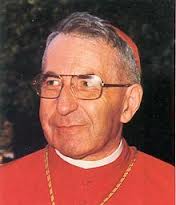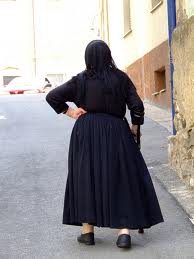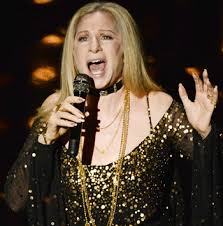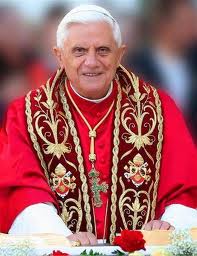|
The good guys won.
Nobody knows how much of the $148-million will ultimately go to Ruby Freeman and her daughter, Shaye Moss. But in a disheartening time of legal stalling, when it looks like the United States cannot protect itself from those who would tear it apart, at least mother and daughter have been awarded an astounding judgment against Rudy Giuliani. The broken-down bully calculated that he could charge the poll workers with trying to swing the 2020 election, if he used the stereotype of Black criminality. Was this Rudy Giuliani all along? Did he build his career as public prosecutor on bashing the minorities? Was he playing to white prejudices – bragging about busting the squeegee guys who tried to clean windshields for quarters on the clogged streets of Manhattan? Our hero. Protecting us. But he wasn’t smart enough when he stuck government offices near the Twin Towers, already threatened by violence. Was he ever anything more than a mirror image of the racist punk he served, who grew up on Midland Parkway in posh Jamaica Estates? They knew the white buttons to press. Bullies know this stuff. Like in the 2016 campaign when Trump pointed out a Black heckler and, from a safe distance, Trump made a heroic punching gesture and said he would love to…. Big man. Playing to the racists who have come out from under the rocks. (Plus, American anti-Semites who have dragged out their inbred prejudices during about the violence in the Middle East. It never went away.) As for domestic politics: Rigged election? Let’s pick on the Black women. But these Black women had something on their side – faith and resolution. When they testified at the Jan. 6 hearings, they were a monument of righteousness. The mother, Ruby, sat at her daughter’s shoulder, willing her strength, a reverse-gender Pietà. And those two women were flanked by officers who had been heroes in protecting the Congress on that horrible day -- big Harry Dunn and his colleagues. On Friday, outside a courtroom in DC, the mother and daughter seemed happily stunned by the jury decision. They were not spending a penny of it, inasmuch as Rudy may very well be poor. Plus, what is the cost of the two women hearing Trumpite footsteps and seeing Rudy shadows for a long time? But the church ladies were cheered by the legal support, and when they made their statements they did not gloat. In fact, they witnessed their faith on the sidewalk – street preachers, the resolution one hears at the Black churches. They can’t exactly go home again. Too many bad people out there. But they could get in a protected auto and leave the sidewalk to a broken-down former prosecutor, on a perp walk, his role now reversed. I used to know Rudy Giuliani – Yankee fan, America’s mayor who stood up big when the airplanes hit us. He was everywhere that terrible autumn, walking with the cops and the firemen and the priests on the narrow streets of downtown. And in his spare time, he went to root for his Yankees as they advanced to the World Series. Not even two months after the attack, Giuliani managed to follow the Yankees to games in Arizona. He was an appealing figure, waiting with reporters for the clubhouse doors to open. “You’re crazy,” I said to a man operating without sleep, on sheer nerve. “Yeah,” Giuliani would admit with a weary smile. And nobody would deny him the cross-country flights, just for a few hours of rooting, normalcy. Eventually, he signed up to serve the bully, the bigot, the liar, who somehow became president. Instead of rooting for the fabled Yankees, Giuliani was now leading the cheers, giving terrible advice to a real-estate phony. They deserved each other, as Billy Martin once said about a much less important issue. Giuliani knew the formula. Blame the Black women. Now he is an old, feeble man, with the shakes, rumors of drinking, his teeth sticking out of his mouth, Rudy the Fool, but still capable of sounding like Rudy the Prosecutor. The truth will come out, he said on the sidewalk on Friday, but instead, guile seemed to ooze out of him, like hair dye on a hot summer day. He used to go after the squeegee guys. Then he served Trump, the real-estate exaggerator. Then he tried to bash church ladies. Bad move, dude.  The Rosenthal china with such a long history The Rosenthal china with such a long history My friend Mendel Horowitz, who frequently comments here, has published a lovely piece about dishes that survived the trek from post-war Germany to Philadelphia and will now be used in Jerusalem at Passover this weekend. Mendel is a writer; you may want to read his touching article right now: https://www.jns.org/opinion/our-german-made-passover-seder-plates/ Mendel’s article reinforces connections I recently made between seders and my family’s Easter dinners decades ago – holy days in the early spring, with a touching similarity: the stranger, the visitor, in our midst. I met Mendel through this little therapy website – a rabbi and counselor of men, in Jerusalem, a long way from his childhood home in Queens. He is also a volunteer on emergency calls, never knowing whether the distressed people will be speaking Yiddish/Hebrew/English/Arabic, and it doesn’t matter. Oh, yes, he and his dad, Ahron are Mets fans. Last week I had the honor of “attending” the wedding of Mendel and Michele’s daughter, Leah, on a hilltop in Jerusalem. It was a vibrant, touching ceremony – with young women greeting virtual friends and relatives in distant lands, and the men singing familiar hymns. I was there. This weekend, for the seder, the family will use Rosenthal china that Zaidy Victor and Bubby Bella, Michele’s grandparents, bought and took with them as they escaped with their lives after the war. Last year, Mendel and Leah lugged two knapsacks filled with dishes, bubble-wrapped, on the long flight, just ahead of the pandemic shutdown. (Another stash of dishes is waiting on Long Island for when flying is more feasible.) Sometimes, the dinnerware and familiar furniture are part of the seder. I never attended one as a kid with many Jewish friends in Queens, although I must have gone to half a dozen bar mitzvahs. When I covered religion for the NYT, I was invited to the warm, welcoming Upper West Side apartment of Rabbi Wolfe and Jackie Kelman, our friends and teachers.  An aunt's dinnerware, when the coast is clear An aunt's dinnerware, when the coast is clear The tables radiated with people from all over – a Japanese couple one year, a Caribbean couple one year, lapsed Jews, observant Jews, and Christians like us. One year, as guests were asked to sing, I delightedly recalled a Hebrew hymn I learned in the chorus at Jamaica High School; the next year I sang a bit of “Amazing Grace.” Many of the celebrants stressed the Passover concern for the stranger, the marginal, people who suffer. Only recently have I made the connection with Easter dinners when I was young, when my mother cooked the specialties of England, where she was born – roast beef, Yorkshire pudding, mint sauce. There was one tradition, if you will: at Easter, at Thanksgiving, at Christmas, a family often dropped in for dessert -- a father and his three children. Missing was the wife, my mother’s dear friend at Jamaica High; she had died young, and this good and sad man was raising their children. I don’t recall us ever talking about the absent friend during that visit, but she was there. In every civilization, the stranger is respected. My wife talks glowingly about meals served her in humble homes in India; my sister Janet and I were recently invited to visit (with lavish snacks) our family home in Queens, by the accomplished Muslim family that now lives there. My wife and I are still holed up, waiting for the blessed vaccines to take hold, waiting for “normal times” to return. All three of our children have dinnerware with family histories, and Marianne brings out the Limoges china given us by her Aunt Emma, a sweet old lady who had no children. (Well, except for a dinner on Christmas Eve, years ago, when we entertained Jewish friends who kept Kosher, and Marianne used glass and paper plates. Warm memories.) It makes me happy to think about the Horowitz family celebrating their seder with china that once belonged to their elders – a ritual of continuity, a celebration of survival. (The eulogy for three citizens can be found from 3:00 to 10:00.) I don't know much about Gov. Phil Murphy from the neighboring state of New Jersey -- but I do know he has two admirable assets in a leader: a brain and a heart.
These were amply evident on Thursday when Gov. Murphy spoke about the impact of the pandemic on New Jersey, starting with the horrible facts and then moving into the personal. In six-plus minutes, he eulogized three residents of New Jersey who had died of the virus. They were selected as a balanced ticket – a Roman Catholic white man, a black man, and a Jewish woman, who had survived as a 15-year-old in Bergen-Belsen and remained a witness and a teacher, into her 90s. As he introduced these three pillars of his state, Gov. Murphy used terms often heard at wakes and funerals, invoking some version of an Almighty to bless their hearts, bless their souls. I doubt that any non-believer, even those allergic to religious presence in public, would be offended by the opening of Gov. Murphy’s own heart. He was feeling the tragedy of losing people, good people, to a killer. By blessing their lives, he was helping all of us feel the humanity of the fallen, and ours. This is one of the highest callings of a leader, in any field. When David Stern passed recently, many people recalled him as tough negotiator as commissioner of the N.B.A., but I also recalled the day he had to banish a player (Micheal Ray Richardson) for life, for repeated violations of drug policy. Rather than be vindictive, Stern seemed to be feeling deeper emotions as he blurted, “This is tragedy.” He felt it. He made me feel it. This was leadership from the heart, as was President Obama’s visit to the church in South Carolina where worshippers had been murdered by a man with a gun. The President took a deep breath and sang, a cappella, the first lines of “Amazing Grace.” He called a blessing on all. He made us feel the horror. Amidst all the legal skirmishes about the presence of religion in public life, leaders often give witness to their faith, sometimes recklessly. Jerry Falwell, Jr., has insisted on re-opening Liberty University; 78 cases of the coronavirus have since been detected in the immediate area. (Personal note: I covered religion in the late ’70s and knew and liked Falwell’s father. I bet Falwell, Sr., would have had enough sense to listen to medical experts.) Nancy Pelosi often ascribes her public policies to her Roman Catholic faith. Former vice president Joe Biden and current New York governor Andrew Cuomo – who applies real facts, real logic, in his daily seminars on the plague – are said to bond in their faith. Meantime, evangelicals ascribe a previously undetected faith to the current president. Preachers told their flock to vote for him in 2016 and I am sure they will again in 2020. He has speculated out loud about the eternal destination of the deceased landmark member of the House, John Dingell of Michigan. There is no evidence that Donald Trump holds any belief in the goodness, inherent or potential, of others. His worth is measured in the stock market, how much relief money he can slip to his cronies. Life is a battle to make himself look good, pushing the rock uphill with every event. It is all about him. Gov. Murphy helped us love the lives of the three citizens, as stand-ins for all the others who have fallen in recent weeks. However we felt it, however we expressed it, in religious or secular terms, we knew it was a tragedy. May the governor have fewer occasions to introduce us to the fallen of his state. * * * The transcript of Gov. Murphy’s eulogy for the three citizens: https://www.nj.gov/governor/news/news/562020/approved/20200416b.shtml A separate clip about Margit Feldman: Holocaust survivor, NJ resident dies of COVID-19, honored by governor (The following ode to Iowa was written before all hell broke loose in the ramshackle "system" that was supposed to collate the Democratic caucus results Monday night. Even before the network failed to produce while the world was watching, visiting savants like Chris Matthews were questioning -- in front of the earnest citizens -- why Iowa got to hold the highly visible first "primary" scrimmage every four years. With these reasonable questions being raised, Iowa may lose its prominent spot. Shame. There ought to be a place for well-meaning Americana -- but maybe not with an ignorant and vicious wannabe dictator getting a free pass from his party enablers. Poor Iowa, caught up in the tumult. My original praise for Iowa and skepticism about a caucus:) They are highly motivated, conscientious American citizens. But what in the world are they doing? Why don’t they just vote? Then I remember, Iowa is different, or so they say. I’ve been there three times and liked all three visits. (More in a bit.) While trying to make sense of this caucus thing Monday evening, I remembered one of my favorite musicals – “The Music Man,” by Meredith Willson, that’s with two L’s, and don’t you forget it. A con man (Robert Preston) gets off the train in River City, Iowa (Willson was from Mason City) and tries to chat up the townspeople, only to receive a bunch of double talk, some of it polite. The result: “Iowa Stubborn.” That charming character trait emerged Monday in snow-covered Iowa (or “I-oh-way,” as some of the denizens insist.) “The caucus is like cricket,” I told my wife. (We once saw the great West Indies team play a tuneup in a Welsh country town.) “Cricket is easier,” she said, meaning – bat, ball, tea. This caucus thing determines who wins the delegates, who has the momentum, or maybe not. It’s a portrait of Iowa. The Grant Wood painting, American Gothic. I am affectionate about Iowa – after first noting that its populace does not at all resemble that of my home town of New York. My first trip to Iowa was in 1973 when Charlotte Curtis, the great Family/Style editor of the Times (herself a Midwesterner), sent me out to Iowa to write about a boy, 18 or 19, who had just been elected mayor of a little town. (I cannot find the story in the electronic files.) It was such a nice visit, at this cold time of year, as I recall. My second trip to Iowa was early in 1979 when Iowa was selected as one of the sites for the first American visit by Pope John Paul II, because of the huge farm preserve, judged a perfect site for the man from Cracow. After scouting out Des Moines, I had dinner with a couple who had met when he was posted to her town in the Altiplano of a South American country. We went to a Chinese restaurant, where they chatted with the staff in Spanish – a big Chinese contingent, emigrated via Latin America. My third trip to Iowa was on a perfect autumn day in 1979 as the square-jawed Pope strode the plains, waving to a bunch of Lutherans. He was young and strong, looking like a former linebacker for the Iowa Hawkeyes. I edged closer to get a look – and got blind-sided by an American Secret Service guy. When the Pope had moved on, I stood on the great plain and congratulated the nun who had facilitated the press visit. She was so happy that the day had turned out so beautifully that I could think of only one thing to do – I hugged the nun. That’s what I think about whenever I remember that day. Oh, one other Iowa impression: Our daughter Laura decided to spend her junior year abroad and chose Iowa City. Every few weeks the phone would ring and a plaintive voice would say: "It's dark out here." 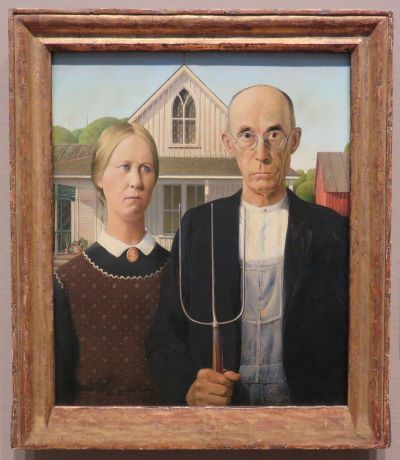 "American Gothic," by Grant Wood. From the Art Institute of Chicago. My feet can find it whenever I climb the front steps. "American Gothic," by Grant Wood. From the Art Institute of Chicago. My feet can find it whenever I climb the front steps. Now, every four years, the great journalists from my cable-network-of-choice wander all over that state and I thrill to every coffee klatsch and every barber shop. The journalists can explain “quid-pro-quo” and “impeachment” perfectly, but they cannot explain what those folks are doing on the first Monday in February. (The aforementioned Laura watched caucus news from Iowa Monday night and texted us: "Nicolle and Rachel far better than Troy and Buck." Poor girl is having Super Bowl flashbacks.) Maybe Meredith Willson could have explained the caucus, but he was more interested in the busy intersection of chicanery and romance, and bless his heart for that. It took a lovely post by a friend to remind me that Mardi Gras is about to morph into Ash Wednesday.
Bill Lucey, a writer and editor in Cleveland, puts out a thoughtful website about (a) baseball, (b) journalism, and (c) life itself. His post today is about how he should observe Lent this year. His examination of his faith should be read on its own, not in my paraphrasing: https://www.dailynewsgems.com/2019/03/the-meaning-of-giving-up-for-lent.html Lucey's article prompted me to recall Mardi Gras/Ash Wednesday from my own perspective, having been raised (and raised well) as a Roman Catholic. I know my two sisters and their families will be observing Lent. (We took two close relatives to our beloved Mama’s in Corona a few years back –during Lent -- and they had to pass up some of the glories of deli and pastry. Oy. That is faith.) Today’s post by my colleague prompted two memories: 1. As the oldest of five, I was fortunate to walk to church on some weekdays with my Irish-born grandmother, always in black. Sometimes she would take me to a luncheonette on Jamaica Ave., for breakfast after church – but maybe not during Lent. I don’t remember. (Kids, ask questions of your grandparents…and your parents. Get their views, their histories.) 2. My most vivid memory of Mardi Gras/Ash Wednesday is from 1971, when I was a news reporter for the NYT, based in Louisville. I had just covered my first coal-mine disaster, in Hyden, Ky., and was still reporting on it. On Feb. 23, however, I was in central Tennessee, covering a story on an army base. I had no clue about Mardi Gras until I had to wake up before dawn to drive across to a hearing in Eastern Kentucky. Barreling due east on the interstate, I messed with the radio dial (much more fun in the pre-digital age) and found a lively station – WWL, New Orleans, 50,000-watts. This post began as a memory of Lent, a spiritual journey, but somehow it is turning into a tribute to the great clear-channel stations of North America – the ones that would keep you going on cross-country drives. (Grand Ole Opry on Long Island on Saturday nights; one Phillies-Cardinals thriller all the way out to Chicago.) https://www.radiodiscussions.com/showthread.php?617480-50-000-Watt-Stations-on-North-American-Clear-Channel-Frequencies This time, pre-dawn on Feb. 24, 1971, I listened to the overnight DJ on WWL raving about Mardi Gras, which was slowly winding down on the littered and sodden streets of New Orleans. He talked about the beads, the drinks, the costumes, the food, the pretty women, the people leaning off their elegant balconies in the French Quarter, shouting and personifying the slogan: “Laissez les Bon Temps Rouler!” And there I was, in the dark, on I-40, heading to a hearing about poverty and neglect in Appalachia, taking in reports of the last bursts of sensuality in New Orleans. Mardi Gras turning into Ash Wednesday, mile by mile. That was Mardi Gras/Ash Wednesday, 1971. Now, stirred by Bill Lucey in Cleveland, I have to figure some way to honor Lent. Thanks, man. “Bertolucci died,” my wife said, checking the pinging on her smartphone.
Immediately, we were transformed to the Baths of Caracalla, where the grand director was making “La Luna” in the Roman summer of 1978 – with two broken arms. There was a lot going on in a month when Romans normally head for the countryside during the annual shutdown known as “Ferragosto” – taking one major Roman Catholic holy day and turning it into a one-month holiday. Pope Paul VI had died on Aug. 6 in the summer retreat of Castel Gandolfo and the Vatican took an ungodly time getting the Pope to St. Peter’s for the funeral. I was sent there by the Times, as a learn-on-the-spot religion reporter. Pretending I knew something, I speculated on who would be the next Pope. (All wrong, of course.) https://www.nytimes.com/1978/08/07/archives/who-will-be-next-pope-cardinals-to-meet-without-clear-favorite-some.html Then the Times went on strike, leaving me in Rome with a borrowed friend’s apartment near the Piazza Navona. How sad. I sent for my wife, and we wandered the city. Right, Bertolucci. A friend of ours had a connection to another major event in Rome that summer – the making of a movie by Bernardo Bertolucci, in the Baths of Caracalla – a film called “La Luna” with a theme of incest, starring Jill Clayburgh. Our friend sent a limo to take us to Caracalla for the day, where Bertolucci was directing with casts on his arms. He had been carrying a camera, peering down into it, and had fallen off a step or a platform, and had broken both arms, but he persevered admirably. Now he bravely balanced the camera on the two casts, still framing scenes as they would appear through the lens, as directors do. A cadre of assistants hovered around him as he tottered on the steps to the stage, lest he fall again. The whole project was in his broken arms. My wife and I hung at the edge of the proceedings with our friend, whispering, perhaps even giggling a bit. Nobody seemed to mind except for Jill Clayburgh, who was gearing up for the tangled emotions of the film, wearing elegant high heels on the uneven ancient stones of Caracalla. She shot us a look or two, and we piped down. That’s all I remember, except for lurid jokes and set gossip we culled here and there. It was, of course, Rome. Matthew Barry, the young New Yorker who was playing Clayburgh’s son, had to preserve his pasty-white coloration for uniformity during the shooting, so they enticed him indoors, day after day -- no beach, no outdoor trattorias. I wondered how they kept him indoors. * * * Our friend called for the limo and a stalwart Roman driver took us toward Centro Storico. I forgot to say, it was also a dangerous time in Italy, threatened by the Red Brigade. The former Prime Minister, Aldo Moro, had been kidnapped and murdered in May and more violence was feared. “Aren’t you afraid of the Red Brigade?” I asked the driver in my minimal Italian. He tapped the solid dashboard of his limo, to signify protection of some sort, and he said, “The Red Brigade should be afraid of us.” I took his word for it. * * * Several years later, my wife was walking on Madison Ave., looking in shop windows, and she spotted the reflection of an elegant woman a few feet away, looking at her, as if to say, “Who is that?” Jill Clayburgh could not place her, and kept walking. I never saw “La Luna,” which did not get great reviews, apparently. http://theneonceiling.wixsite.com/home/pres That’s my only memory of Bertolucci – carrying on, with all the force of a great Italian director, in the August heat, in Caracalla. The following is a contemporary version of the classic warning of the Holocaust, by the Rev. Martin Niemoeller. This was written by my friend, Arthur Dobrin, the Leader Emeritus, Ethical Humanist Society of Long Island, and professor emeritus, Hofstra University.)
First they mocked the handicapped and then they boasted about assaulting women. And I did nothing. Then they called black people stupid and Muslims terrorists. And I did nothing. Then they called Mexicans rapists and the press the enemy of the people. And I did nothing. Then they called political opponents traitors and those who body-slam critics “my kind of people.” And I did nothing. Then they posted pictures of dollar bills over Stars of David and said transgendered people couldn’t serve in the military any longer. And I did nothing. Then two African Americans were shot dead in a supermarket, pipe bombs were sent to critics of the administration and eleven Jews were murdered in a synagogue. And now the president laments the hate in the country and then tweets about baseball. * * * (The incident in the video has played out dozens of times, and the message continues: take matters into your own hands. Trump’s behavior, as he foists himself upon a grieving Pittsburgh, reminds me of George Orwell’s immortal warning in the novel, “1984:” If you want a picture of the future, imagine a boot stamping on a human face, forever. Trump’s impact on the U.S.A. and the world is more and more apparent. Nearly half this country voted for this man. At the same time, the pastor’s daughter, Angela Kasner Merkel, has announced she will leave the chancellor’s post of Germany in 2021. She witnessed two totalitarian regimes – Nazi and Communist – and became a beacon of humanity in a world growing darker by the day. My thanks to Arthur Dobrin. Oscar Arnulfo Romero carried the aura of a man propelled to do what he knew he must do – speak out for the poor with no voice in El Salvador.
He knew what was waiting – a death squad, sanctioned by the powerful, and it got him less than a year later. This humble man was canonized by Pope Francis in St. Peter’s Square on Sunday. A large contingent of Salvadorians, some wearing peasant garb in honor, was there. The Pope was wearing the bloodied vestment the archbishop was wearing in March of 1980, when the death squad got him – while he was saying Mass. I met him twice in Mexico in 1979 when I was covering religion. I have written about those meetings on this site: https://www.georgevecsey.com/home/i-once-met-a-potential-saint-archbishop-romero In recent weeks, my friend Gene Palumbo, whom I also met that month in Mexico, wrote a piece about the ongoing analysis of Archbishop Romero's journey from a cautious priest serving the church into a committed bishop serving the people as well. There are different versions of how he changed -- including a film with apparent "creativity" on serious issues. Gene explores some of the differences in his article in the National Catholic Reporter. https://www.ncronline.org/news/opinion/archbishop-scar-romero-setting-record-straight It is clear that Romero understood what had changed in his life. In a documentary, he is heard saying: "I don't think there has been a substantial change," he said in the interview. "It is more of an evolution in accordance with the circumstances. My goal as a priest has always been to be faithful to the vocation, to the service of the church and the people." As the years go on, I feel more connected to Archbishop Romero. I also feel that I met the four American women, three nuns and a lay worker, who were murdered in December of 1980 in Salvador. I know I met four very dedicated American women based in Salvador during that same Catholic conference in Mexico in March of 1979, but I cannot verify their identities. https://www.nytimes.com/1998/04/03/world/4-salvadorans-say-they-killed-us-nuns-on-orders-of-military.html Archbishop Romero is being honored by his church for doing work that was suspect in his time – empowering the poor and underprivileged. During that conference in 1979, I heard top American prelates scorning the Liberation Theology behind community-building among the poor. The death squads in Salvador could not have missed the contempt from the hierarchy. It never ends. The other day, an expatriated Saudi dissident walked into the Saudi consulate in Turkey to update his passport and never left, at least in one piece, in an episode out of “The Sopranos,” undoubtedly ordered at the top of the command chain. It never ends. With great respect for the life, and death, of Archbishop Oscar Arnulfo Romero. The Passover/Easter weekend ended well, or at least entertainingly. I enjoyed the latest version of “Jesus Christ, Superstar,” live on NBC, even with all the commercials. The music took me back nearly five decades and the production was modern and energetic, with great, careful harmonies from the large cast – performing on the move in an armory in Brooklyn. John Legend played the title role, transported at the end into the heavens, or at least the rafters, and to my relief he emerged in one piece for the curtain call. To my hearing in the year 2018, this version emphasized the doubts of Judas Priest – or maybe I was sensitized by Jon Meacham’s thoughtful take on Easter in Sunday’s NYT Book Review. Mainly, this version of “Superstar” was entertainment – and I was entertained. Legend was, in a way, out-rocked by Brandon Victor Dixon (best known for his friendly little salutation to Vice President Pence after a performance of “Hamilton.”) Bouncing his way cynically and energetically through the melee of Jerusalem, Dixon owned the stage. Sara Bareilles as Mary Magdalene? Let me just say that I am a few decades past it for pop music (most of it sounds like calisthenics)-- but that strong, lush voice and gorgeous Levantine nose on Sara Bareilles? Where has she been all my life? Then there was the mincing presence of Alice Cooper, performing the song he was born to sing -- that Vegas-English-music-hall mixture, “King Herod’s Song.” He said he was channeling Elvis; I thought of the late, great Tiny Tim on speed. (I read in the Times that Alice Cooper got religion when he sobered up. So we had a born-againer playing a mad king. That’s show biz.) The performance came after news that, on Easter morning, the great white hope of the Evangelicals could not even fake “the spirit of Holy Week,” as Laura Ingraham said in perhaps her final days as a creature of the cable. (It has come to my attention that Ingraham and Ann Coulter are actually two different people. How long has this been going on?) Last week Ingraham trashed one of the young people who survived automatic weapon fire in Florida and then, watching her sponsors vanish, she cited religious impulses to take it all back, sort of.) From his tropical Berchtesgarten, Trump tweeted out that he was going to enact new horrible penalties on Mexico and Mexicans. When questioned outside the church, Trump brayed affirmations of his intent on a weekend when Jews and Christians were honoring survival, celebrating outsiders, the others, in our world. The Four Questions had been asked at Seders, the extra place set for Elijah; the agony of the “carpenter king” noted in sacred and profane ways in church and on the stage of the armory in Brooklyn. And at my wife’s lovely Easter dinner, somebody at the table recalled a recent holiday when most stores were closed -- but a Latino bodega in our town was selling coffee and pasteles and more. The outsiders are now part of us. God bless them. And the President wants to expel them. That bad actor is still performing a role for which he never rehearsed -- not channeling Elvis or Alice Cooper but something more camp, and at the same time more vile, more ominous. * * * (A friend sent this in the Jesuit magazine, America:) https://www.americamagazine.org/arts-culture/2018/04/02/why-jesus-christ-superstar-was-live-tv-its-best (In case you missed Alice Cooper: ) “It is better to light a single candle than to curse the darkness.” -- Attributed to Eleanor Roosevelt. Hindus celebrate Diwali at different times of the year. We once saw uniformed bobbies dancing with celebrants in Trafalgar Square, London. Very sweet. This October, 35,000 people celebrated in Leicestershire, England, my mother's ancestral roots. This year Hanukkah begins the same evening my family celebrates Christmas Eve. We have had a menorah in our home for years. In the next few days we will go for a good meal at a modest Halal restaurant near us – and celebrate the diversity of this blessed country.  This came over the electronic transom, a mass posting by Bishop Sally Dyck of the United Methodist Church, about the symbolism of an inverted tree, in a store near her: “Jesus’ birth over 2000 years ago was in the midst of unrest, oppression and violence as the people of Israel labored under the Roman Empire. He brought a message of hope, peace and justice in the midst of a time and place where there was no hope, no peace and no justice. Jesus came to turn the values of the Empire upside down!” My wife and I watched the BBC documentary on Pope John Paul II and the female philosopher.
His long intellectual and emotional friendship reminded us of a Sunday picnic at Gethsemani Abbey in Kentucky in 1971. The most famous member of that abbey, Thomas Merton, had died nearly three years earlier, in Bangkok, on his journey outward from the rolling hills and cheese production and long silences, but he was still a presence, the reason we were there. A few members of the Merton society, new friends who had welcomed us to Louisville, invited us to visit the abbey on Sunday, when the Monks, Merton’s peers, were allowed to speak, to meet visitors. We were not prepared for the rush of energy from five monks, who mingled with us on the lawn on a gorgeous afternoon. They were polite to me, eager to talk to my wife, who had packed a picnic basket. “They wanted to talk to me, not formally, just ‘It’s my turn now.’” Marianne recalls. “I probably spent 10-15 minutes alone with each of them, one on one.” I remember being escorted on a tour of the abbey – the sparse rooms, perhaps a chapel, the rooms where they made cheese. They kept me busy. I understood. “They all said how much they missed talking with women,” my wife remembers. “They said they laughed differently with women than with men. They talked about their mothers and their sisters. One man said he felt sad that he would never be a father and wanted to know what it was like to raise children.” Four decades later, she fondly remembers these men acknowledging the gap in their lives, the part they had given up for their spiritual mission. Merton was the man in the room who wasn’t there. He was the worldly member, born in the Catalan corner of southwest France, shuttled around Europe, studied at Columbia University in New York City, lived, explored, thought, wrote, was refused the priesthood because of his worldly past, so he became a monk, seeking peace and quiet. He became a celebrity through his writings, met the Dalai Lama, and then, quite apparently, while recuperating in a hospital in Louisville, had a brief affair with a young nurse. He was in Bangkok, when he died, electrocuted by faulty wiring on a fan, as he left the shower, far from the quiet abbey in central Kentucky. There is no moral to this, no talk of sin or weakness, no screed against celibacy, against monasticism. Merton needed to speak out against war, against injustice. The former Karol Wojtyla from Krakow expressed himself in a complicated relationship with a worldly married woman, Anna-Teresa Tymieniecka, who lived in America. The documentary said there is no reason to believe they had a physical relationship, and I believe that, from my impressions of him, up close. He was a strong man, in every sense. I first saw John Paul II in person at a dude ranch outside Mexico City in 1979, on his first journey as Pope. He told us we should regard journalism as a vocation, a calling. I have never forgotten that. He was a force, even when I did not agree with his politics. I saw him up close again in the fall of 1979 when he was striding across a heritage farm in Iowa, greeting Lutherans. As he moved across the turf, his strength, his stride, his jutting jaw, reminded me of a linebacker stalking a quarterback. (That’s when the security guard elbowed me, said I was getting too close.) I believe that Karol Wojtyla was quite capable of being Pope and dear friend at the same time, although it sounds as if his friend had other ideas. The documentary showed their letters and also his sturdy face, even in old age and illness, visibly happy whenever he saw his friend. He reminded me of the monks at the abbey, who told my wife they missed women. Donald Trump thinks Pope Francis is “too political” because he will visit a camp of migrants during his stop in Mexico. This comes while Trump is seeking – and getting! – support from Christian voters. I bet he hates the idea of the Pope building showers and toilets in Rome for the homeless – those loafers – and speaking with tolerance about gays, asking “Who am I to judge?” It seems clear to me that Trump does not have normal human compassion. His success with Americans as a sneering tyrant on a reality television show has further emboldened his unchecked infantile impulses. Yet some Americans, professing religious values, fall for him. He’s their kind of guy. Trump’s criticism of Pope Francis reminds me of another papal trip to Mexico, which I covered, oh my goodness, 37 years ago. The new Pope, John Paul II, in his first overseas trip, arrived in the Zócalo, the center of ancient Mexico City. The Pope issued a call for the Catholic clergy of Latin America to get back in uniform and deliver the sacraments and not bring some semblance of self-determination to the poor. Don’t be political, in other words. The coded words sent a message all over Latin America, allowing governments to clamp down on activism toward the poor, including in Jorge Mario Bergoglio’s native Argentina. This Pope has seen repression up close, has been deeply scarred by it. The latest Trump outburst reminds me of Mexico in February of 1979 when I twice met Archbishop Oscar Arnulfo Romero of El Salvador, who spurned luxuries and slept in a peasant hammock and encouraged help for the poor. I wrote about my encounters with Romero a year ago: http://www.georgevecsey.com/home/i-once-met-a-potential-saint-archbishop-romero I asked Romero whether the words from Mexico City did not put religious activists in trouble all over Latin America. His response was a somber yes, without any sign of fear or weakening. A year later he was assassinated while saying Mass. Trump has surely never heard of Oscar Arnulfo Romero. I assume he knows nothing of the desaparecidos, the thousands of Argentines who were taken away, never to be seen again. Trump knows gold-plated bathrooms and tactical bankruptcies and serial marriages. The Pope builds toilets and showers for the homeless. In an ancient ritual of humility and service, he washes and kisses the feet of Muslims and convicts. Trump wants to build a wall. Boasts that Mexico will pay for it. And many Americans professing religious leanings are charmed by him. * * * (Terrific article about Trump's world view:) http://www.salon.com/2016/02/12/donald_trumps_white_america_is_revolting_new_numbers_show_just_how_noxious_the_gop_front_runners_coalition_is/ 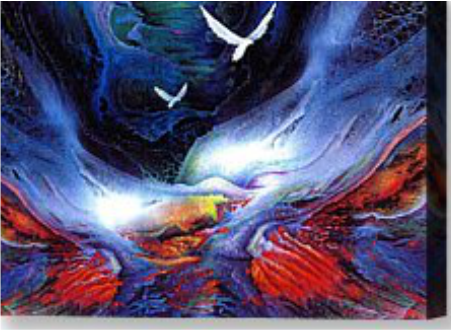 The Biblical Image by Igor Paley. Just saying. The Biblical Image by Igor Paley. Just saying. There is something ancient about the National Pastime that evokes the spiritual, the other-worldly. I submit “The Natural” and “Field of Dreams.” Now two friends of mine have written topical essays about the overlap between baseball and the Jewish holy days. In New York, we are used to glorious weather for Rosh Hashanah and Yom Kippur. Last Sunday, the rain stopped right around sundown on the Jewish New Year to let the United States Open begin, albeit three hours late. Tennis fans did not have to be Jewish to benefit from the cessation. The baseball season is always in its crucial days when the holy days arrive. My friend Mendel Horowitz, rabbi and family therapist in Israel, who often contributes insightful comments on this site, has written about the intersection of the sacred and the profane. Here is the link from the Washington Post the other day: https://www.washingtonpost.com/news/acts-of-faith/wp/2015/09/16/yom-kippur-is-about-to-collide-with-baseball-but-the-two-go-so-naturally-together/ And my friend Hillel Kuttler from Baltimore has written about an event half a century ago, when Sandy Koufax chose to not pitch the opening game of the World Series on Yom Kippur. Kuttler discusses the message Koufax sent to Jews (and others.) The link from the Jewish Telegraphic Agency: http://www.jta.org/2015/09/08/life-religion/why-sandy-koufax-sitting-out-a-world-series-game-still-matters-50-years-later I covered that World Series in Minnesota, when Don Drysdale, the second ace, was hammered. Kuttler repeats the anecdote that when manager Walter Alston came to the mound to take him out in the third inning, Drysdale said, "I bet right now you wish I was Jewish, too." Everybody low-keyed that observance, including Koufax. He just never worked on that day. The Dodgers won the Series anyway. Woe to people who ignore the holy days. In 1986, Major League Baseball scheduled a night game and a subsequent day game -- not one game but two -- within the 24 hours of Yom Kippur. In New York. I’m not Jewish, but I know from chutzpah. My column on Oct. 1, 1986, predicted a deluge: http://www.nytimes.com/1986/10/01/sports/sports-of-the-times-mets-forecast-a-deluge.html The Sunday night game was rained out. Of course. Mendel Horowitz and Hillel Kuttler understand. The Rev. Gardner C. Taylor was 96 and in retirement in North Carolina. Once he was a giant in the pulpit of Brooklyn, the entire world. He was an intellectual who made bells ring when he spoke.
I was just thinking about Dr. Taylor Sunday afternoon as I pondered the closeness of Passover and Easter this year, remembering seders at the Kelman household on West End Avenue and the sermon by Dr. Taylor in Harlem during Holy Week. How lucky to be part of so many worlds. To my chagrin, I had never heard of Dr. Taylor until 1978, when I was covering religion for the Times, although he was a pillar of religion and civil rights (if one can separate them) as pastor at the Concord Baptist Church of Christ in Bedford-Stuyvesant. I heard about a gathering of black pastors every Monday, when one preached and later they all went out for lunch, uptown. It was the day after Palm Sunday, and Dr. Taylor was preaching to the committed, about the ordeal of Jesus Christ during Holy Week. For a time, he was intellectual, measured, logical, but then he raised the amps. I described the mood in the church: “I say to every Christian, You have not even wrestled with temptation the way Jesus did. Where are the blood marks? What pain have you undertaken in the name of Jesus? What sacrifice...? We cannot even know the misery of our Lord.” Then, with most people leaning forward eagerly, Mr. Taylor retold a basic truth of Christianity – that Jesus came back on Easter morning. “He won!” Mr. Taylor exclaimed, and his own colleagues began chanting at the end of every sentence. “He won!” until he finished with the urgent, emotional message of the Resurrection, and ended abruptly. I can still hear his voice pealing. Later I came to know how he and the Rev. Martin Luther King had formed a progressive black Baptist denomination to advance civil rights, and in 1993 Dr. Taylor preached during the inauguration of President Clinton. I grieved from afar in 1995 when Dr. Taylor’s wife, Laura Scott Taylor, the unsalaried principal of the church elementary school, was killed by a truck as she crossed a street in Crown Heights. (He later remarried.) He was a great American, graduate of the School of Theology, Oberlin College , and lecturer at Princeton. He was on my mind the afternoon he passed. Óscar Arnulfo Romero seemed like a holy man -- including his very real danger of martyrdom. Now the Roman Catholic Church has confirmed the late archbishop of El Salvador as a martyr, a major step toward sainthood.
I met him in Mexico in February of 1979 when I was covering a regional conference of bishops and cardinals in Puebla. My colleague Alan Riding, who was based in Mexico, knew Romero quite well, and sought him out. Standing on a street corner, they spoke and I tried to follow with my poor Spanish. My impression was of an austere man who was unafraid to speak with a reporter from The New York Times. I later learned that he spurned all luxuries back in San Salvador, insisting on a modest apartment, where he slept in a hammock, peasant-style. Archbishop Romero was associated with Liberation Theology, the concept that Christ’s teachings must be applied in an option for the poor. Romero said, “There are two theologies of liberation. One is that which sees liberation only as material liberation. The other is that of Paul VI. I am with Paul VI.” But what did the new Pope think? John Paul II, the former Karol Wojtyla of Cracow, was making his first trip out of Italy since his selection the previous fall. The world was awaiting his vision, which was delivered in the crowded Zócalo, the ancient center of the Aztec city, once named Tenochtitlan. The Pope's views can be interpreted many different ways. It sounded to me that he had suggested priests and nuns get back into uniform and stick to administering the sacraments. If so, it seemed quite likely that Oscar Arnulfo Romero had been set up as an enemy, a radical, although the cardinals tried to deny the Pope would ever be so overtly political. The Pope went back to the Vatican and the conference began in Puebla, on the other side of the twin volcanoes. I requested an interview with Archbishop Romero, and was honored when he slipped out of a conference for a few minutes. In the wintry sunshine, I asked him, as best I could, if he thought the public interpretation of the Pope’s message could be dangerous to people working with the poor in Latin America. I have lost my notes -- and the brief conversation never got into print – but the Archbishop understood my question. The danger had been ratcheted up. On March 24, 1980, I was driving in Florida and heard that Archbishop Romero had been shot once in the chest while celebrating Mass in San Salvador. Tears in my eyes, I had trouble staying on the road. That December, four American nuns were raped and killed by soldiers in El Salvador. I had met heroic nuns like that in Mexico; I think of them often. For over three decades, people have been compiling their memories of Romero – how he climbed hillsides to deliver Communion to the peasants, how he dealt with Vatican bureaucrats while watching his priests get knocked off. The current Pope, Francis I – who saw murderous activity up close in his homeland of Argentina – has encouraged the process to honor Archbishop Romero. The Pope has asked “Who am I to judge?” about gay people and is currently installing bathrooms and showers for the homeless off St. Peter’s Square. He reminds me of the cleric I met in 1979, the man with the kind, fearless eyes. If the Roman Catholic church needs spending money – and what religion doesn’t? – I have a modest proposal: brand the tolerant words of Pope Francis about gays and sell t-shirts and ball caps with the revolutionary phrase, which sounds like the sayings of the Jewish preacher of two millennia ago.
The new Pope’s words on his trip home from Brazil suggest an inclusivity not always seen in the era of the various hand hand-choppers of modern religions. You’re not like me? Whack! Speaking of judging, how about the interview by Lauren Green of Fox, apparently the occupier of the Glenn Beck Chair of Philosophy at the network of fair-and-balanced? Green was interviewing Reza Aslan, author of a new book about Jesus, called Zealot. She asked how he, as an American of Iranian descent, who is Muslim, could possibly write a book about Christianity. (He had been Christian for a time, but she did not seem to know that.) In the official Fox judgment, this rule would disqualify Hindus from writing about Islam, Christians from writing about Judaism, and so on. Academic research and opinion, be damned. The academic was forced on the defense, to stress his degrees and past work. In Beck-ish, O’Reilly-ish tones, the Foxite asserted her position: Stick to your own kind. The good news is that Zealot is selling very well. In appearances with Chris Hayes and others, Aslan has come off as wry, complicated and earnest. Perhaps he should have done the Fox interview with a t-shirt quoting this new Pope. The babble from the American news media is that the new Pope is from Latin America and is a Jesuit, therefore this must be good for the poor and sorting out the scandals.
I am three years younger than the former Cardinal Bergoglio, in pretty good shape, and write four or five hours a day. Having been around one conclave, and covered religion for four years, when I hear the expectations being projected from afar on the new Francis I, my first reaction is: I need a nap. Take it from me, since I was around a Conclave, the Vaticanologists do not know what they’re talking about when they predict the new pope.
Better you should consult a Roman housekeeper from Sardinia, named Grazia. She will know. I discovered this in August of 1978, when I was dispatched to Rome upon the death of Pope Paul VI. (The first thing I learned is that journalists in Rome do not refer to the popes by number but by their original family name; Montini had just passed, for example.) Every expert was talking up the most famous candidates – Baggio, Maldini, Baresi, Del Piero. (Those are actually soccer names; I just wanted to see if you were paying attention. The point was, the favorites were all Italian.) As soon as I got to Rome, the Times promptly went on strike. Our bureau chief departed for, I think, the beaches of Sardinia, lending his flat in the Piazza Navona to me and a colleague and our ladies. This gift included his Sardinian housekeeper, well under five feet tall, named Grazia. Her sister, also under five feet tall, was visiting. They wore black all the time. Since I was the only one of our group who spoke any Italian, Grazia ran the household through me, but mostly she divulged her predictions for the upcoming conclave: Signore Giorgio! Cardinale Luciani! Venezia! Famiglia Socialista! Uomo di Popolo! I recited to her the names of all the Italian favorites. She wagged her index finger at me like a defender telling the referee not to give a yellow card. Since I was on strike, my wife and I took a side trip to Vienna and Budapest. We came back when the conclave began. Grazia repeated her assertion that the Venetian cardinal would win. Then one afternoon, while I was taking a blessed nap with the shades drawn, I could hear bells ringing all over Rome. I heard bustling in the hallway. Grazia and her sister, in their finest black, were heading off to church to pray for the new pope. Grazia paused in the doorway and delivered her punch line: Signore Giorgio! Cardinale Luciani! Venezia! Famiglia Socialista! Uomo di Popolo! Albino Luciani lasted only a month. He was succeeded by a Polish prelate named Karol Jósef Wojtyla (whose name emerged from the first conclave; maybe I’ll tell that story in a day or two.) If you want to know the identity of the next pope, ask a Sardinian under five feet tall. Or her sister. Ever since last Sunday night, I have been thinking how cool it was that Barbra Streisand sang “The Way We Were” in tribute to Marvin Hamlisch. She had not sung at the Oscars in 36 years but showed up with immense energy for her friend.
* * * Having covered one conclave and a few papal trips, I’d like to express my admiration for the way Pope Benedict XVI resigned. I am sure he was giving an intentional signal that the human part of his organization is not working so well. He showed the world that six centuries of tradition did not have to continue – a good reminder in our lives, public and private. . * * * I never thought I’d see the day when the Yankees would not spend money to improve their team. With Curtis Granderson out for a few months, The Boss would be trying to buy an all-star level outfielder, no matter the cost. He was insatiable. I’m not a Yankee fan, but I got used to his zeal for perfection. His sons want to cut the payroll. They must not be making money in their theme park in the Bronx. * * As a huge fan of The New Yorker, I was interested when a saw a long piece by the estimable Ryan Lizza with a photo of Rep. Eric Cantor, but the current article is mostly about the mechanics of ominous politics and economics. I wanted to find out how somebody so low in personality could possibly get elected to public office, but the article gave no clue. What produced this sour and inarticulate human being? The only thing I learned was that he gets along with his mother-in-law, apparently a liberal Democrat. That’s nice, but in his public appearances, lurking behind the shoulder blades of John Boehner, there is no trace of a mensch. Happy New Year. I can say that, having been pronounced an honorary Jew by our departed friend, the rabbi.
Happy New Year. We all need new years, new beginnings, days of atonement. They purify us, even by osmosis. Happy New Year. I remember a lovely young woman telling me with great enthusiasm about the spiritual glow from her family's fast at Yom Kippur. Happy New Year to friends all over the world, and particularly Jen and Sam in Tarn-et-Garonne. We stayed with them once at Yom Kippur; their home was still, the weather hauntingly gorgeous in France, just as in New York. Happy New Year. The most overtly religious thing I do, aside from prayer, is take out the family menorah every December.
I love to handle its sturdy stem and graceful arms, and I love the ritual of lighting it, when we are home, when I remember. I am a Christian; we have two or three Ganeshas around the house; I still glow from interviews with the Dalai Lama years ago. It all flows together, particularly in this country founded on freedom and multiplicity. The menorah stirs feelings that are ancient – the same connections I sense in Brooklyn when I gaze at the Hasids who, of course, make no eye contact whatsoever. I feel they are kin, somehow, through my father, who was adopted, but I spare them from telling them so. The menorah touches deeply because it speaks of survival and courage. When the candles flicker through our front window, they say, Here Too, More of Us, whatever us means. The past year, lights have been glowing in parts of the world where it takes extreme bravery to congregate, much less protest. Light a candle for people of courage. Happy Hanukkah. |
Categories
All
|
